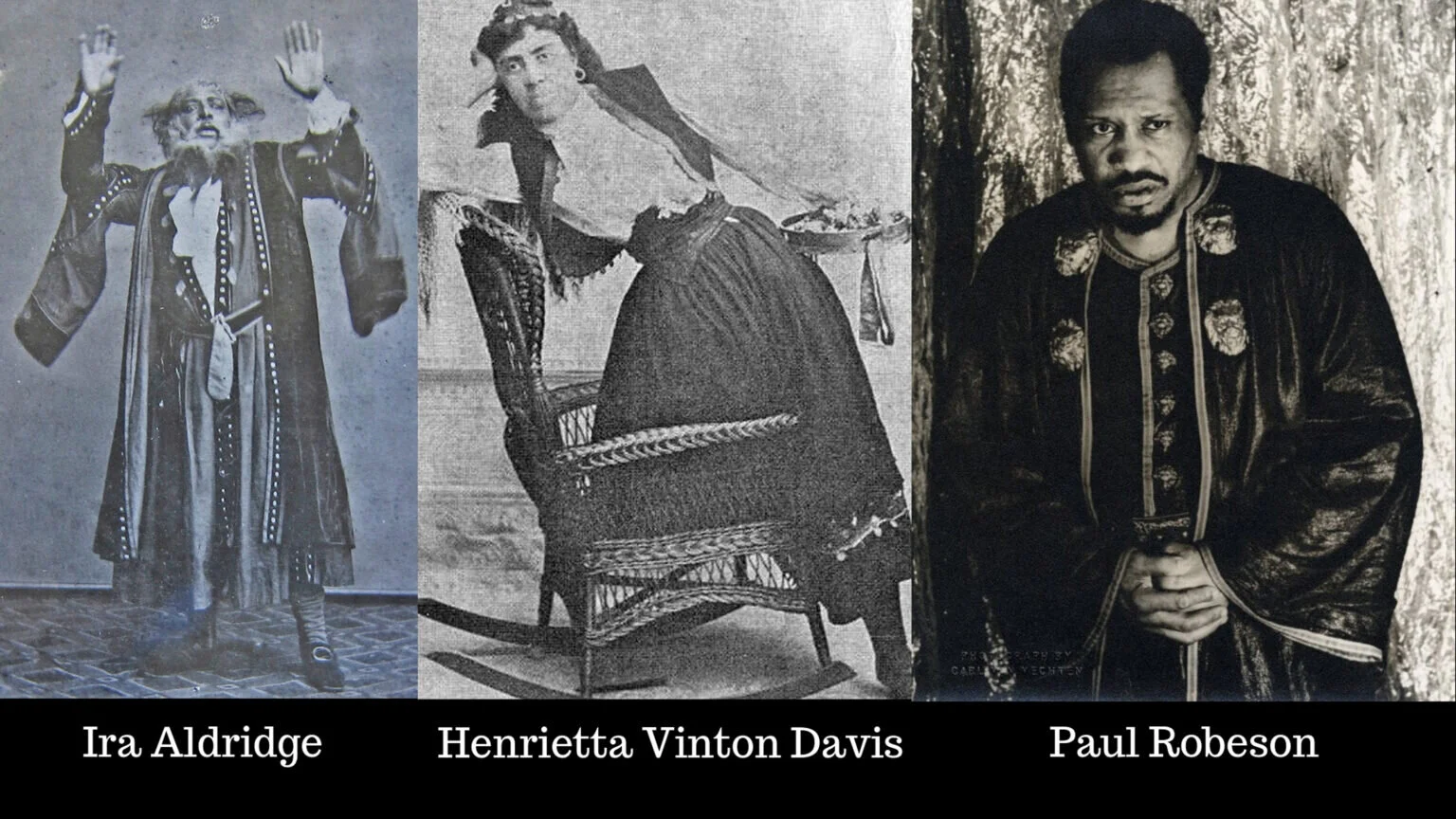Speak of Me as I Am: a Celebration of African American Contributions to Shakespeare
written by Miranda Allegar - August 5, 2020
The life cycle of virtual theater has progressed rapidly in the last few months, to the point that many theater enthusiasts may already find themselves, as our research team has, referring to “standard” or “traditional” Zoom theater. Yet, even as theater broadcast through teleconference platforms becomes mainstream, and new, flashier innovations emerge, the benefits of the format remain clear. This past week, Houston, Texas’s Main Street Theater used the live video streaming format to continue the spirit of their educational offerings while the theater remains shuttered as they broadcast Speak of Me as I Am: a Celebration of African American Contributions to Shakespeare via Facebook Live.
The performance first emerged in 2019 as part of the theater’s collaboration with the Harris County Public Library for Black History Month and as part of the Shakespeare for All initiative, coming back in February of the following year, just before the pandemic hit. These original shows were presented at neighborhood libraries, directly bringing a theatrical and educational performance to audience members for free. Just months later, as the reality of socially distant theater became clear, the theater and its Director of Education and Youth Engagement, Jonathan Minchew-Gonzalez, reworked the piece for the current moment. The summer of 2020 has proven a moment of dual consciousness, of both trepidation and isolation as the pandemic continues and of social awareness of the Black Lives Matter movement. Re-working this show, and doing so through live-streamed video in particular, duly met the moment. Further still, the performance meets the gap of a summer without free Shakespeare, normally met by the Houston Shakespeare Festival at Miller Outdoor Theater and provides an example of how online teaching may be made more engaging.
The show features Gonzalez himself alongside local actors Ansonia Jones and Ernest Neal, each serving as narrator and performer in turn. The presentation walks its viewers deftly through the history of Black performance of Shakespeare, highlighting lesser-known or unknown figures like John Nixon, Ira Aldridge, Henrietta Vinton Davis, and Paul Robeson through a mixture of informational speeches, re-enactments, and dramatic readings of choice excerpts of the Bard’s work itself. The piece engages first with the most notable entrée into a discussion of race and Shakespeare, that of the titular character of Othello.
Speak of Me as I Am: a Celebration of African American Contributions to Shakespeare guides its viewers through the antiquated American backlash of the 20th century to a Black Othello, discussing the negative reviews and white fear brought about by the depiction of a mixed-race couple, Othello and Desdemona. The piece then plainly lays out the complicated relationship between Shakespeare and race with evidence: his single four explicitly Black characters, all of which are portrayed as outsiders or “exotic.” Namely, the show discusses and portrays monologues for Othello, the Prince of Morocco in The Merchant of Venice, Cleopatra in Antony and Cleopatra, and Aaron the Moor in Titus Andronicus.
The performance then pivots, devoting time and care to the careers, highlights, and obstacles faced by Aldridge, Davis, and Robeson. The piece also uses this portion of the show to highlight lesser known watershed moments in Black Shakespearean history, including the Orson Wells’s 1936 performance of Macbeth in Harlem, termed “Voodoo Macbeth” for its transplantation to the West Indies with a cast of over one hundred Black actors, and the start of the Mobile Shakespeare Unit through Joseph Papp, bringing diverse and multiracial casting throughout New York in the late fifties.
Throughout the performance, the choice of Facebook Live for this piece rang true, as the actors pivoted between narration and performance, utilizing the platform’s screen name feature to change character names, turning on and off video to change costumes, and playing with digital intimacy as they alternately addressed the audience, performed soliloquies, and performed partnered scenes. It created a performance that, in person, might have felt cloying, but instead created a resounding sense of liveness straddling the line between lecture and acting carefully. Lastly, the performers then turned to a question and answer portion of the piece, discussing their own entry points into Shakespeare and the use of the current moment to get what was always intended as an educational piece to more people at a time when free evenings might be more plentiful. They then closed the piece by discussing the best Black Shakespeare adaptations each could recall that are available for streaming right now.
While the piece was not flashy or experimental, it did not try to be. It highlighted the power of Zoom and integrating performance into teaching at a moment when the national conversation has focused on the drawbacks of such an effort, as schools seek to re-open. Speak of Me as I Am instead embraces the blurring lines of what can be theater right now and promotes accessibility of not just art, but also learning as the world stays at home. They intentionally welcome people into the production, noting issues of tech accessibility by including the message, “You do not have to have Facebook to watch!,” in their marketing. It speaks to the potential for more engaging educational experiences throughout a largely unprecedented and uncertain fall ahead.

